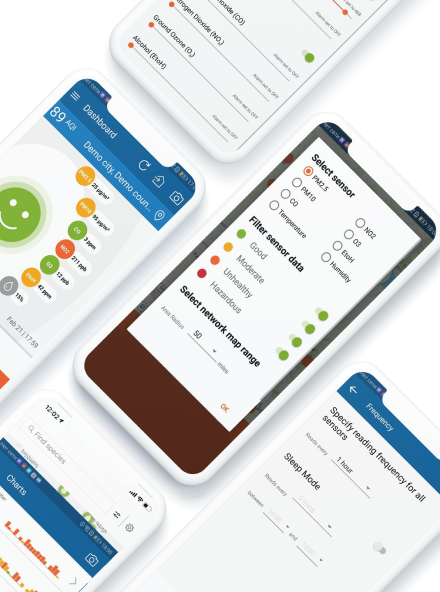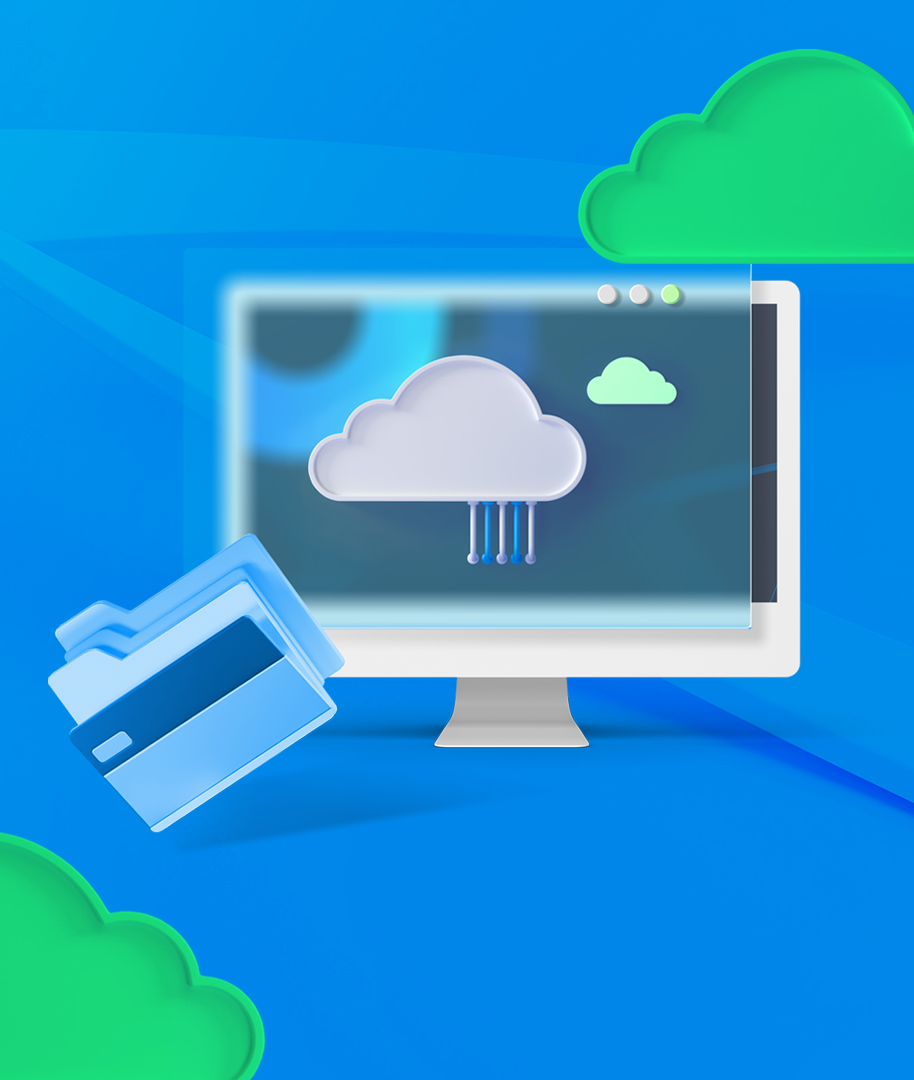
Software Development with Python: Why is It the Right Choice for Your Next Project?
17 Jul 2024

There is a reason why Python, for the 5th year in a row, is in the top 5 most popular programming languages of the world.
By now, we have tackled the history of Python, its development, and the reasons behind its popularity, pretty much covering all the various aspects and use cases of Python. This time, however, we will look at this programming language from a slightly different perspective - that of business owners, discussing the reasons why you need to choose Python for your software development projects.
In the rapidly evolving landscape of entrepreneurship, regardless of your industry, you need allies - more precisely, strong technological allies - in order to unlock the full potential of your business and not to take a backseat in the tough market competition. Python can become that ally you have been looking for, helping you streamline your business operations and foster innovation throughout your company.
How can a programming language do this, you may wonder? Let’s delve deeper and look into the business benefits of Python more thoroughly.
Check out the first episode of our Python webinar series.
7 Reasons Why Python Development Can Benefit Your Business
Python has long become a go-to choice for a wide range of software development projects, from web and mobile applications and prototypes to complex enterprise software solutions. This is not only thanks to it being open-source, cross-platform, easy-to-use, and versatile with extensive libraries, third-party modules, or resourceful frameworks. There is more to Python that will sound rather appealing to business owners.
Here are the main reasons why businesses choose Python for their software development projects.
1. Faster Time to Market
As a business owner, you want your software product, or any other product, for that matter, to be ready and raring to go as soon as possible. At the same time, you don’t want the quality to suffer either. All the while, the market doesn’t wait. A conundrum, isn’t it?
Don’t worry though. Python can help you solve this situation in the most optimal way. It is the right tool for businesses wanting to develop their projects within short timelines without sacrificing the quality. Thanks to its simplicity, Python applications require much less time to code than any other language.
Python has numerous built-in dictionary data structures that account for a faster runtime of the code. Additionally, Python’s code length is much shorter than that of any other language.
It is no wonder that Python is always the first recommendation for MVP development since developers can build it within a short time period, thus allowing business owners to test their products, discover customer needs, and only then develop a full, feature-rich solution.
Since Python has various third-party libraries, it allows developers to build many elements much faster. Python’s standard libraries also contribute to the faster development of projects, helping tech teams quickly solve such problems as file archiving, performing cryptography, or system operations.
This programming language has strong process control and text processing capabilities as well as an efficient unit testing framework - all of these make the development process faster and more productive.
2. Robust Security
What can be more important for a business if not the security of its data? One of the first things that you need to look for in a programming language and the tech company that will be working on your project (unless you have an in-house team) is security.
Even the smallest data breach can have no less than fatal effects on your company, resulting in lost customers, damaged reputation, not to mention the loss of money.
When it comes to Python, you can rest assured that those who created the language, always had security in the back of their minds. Over the years, Python has grown to be one of the most safe and secure programming languages out there.
The main thing that makes Python safe is that no one can directly view the source code of your software, making it difficult for hackers to cause data breaches. This helps enhance the security of your applications and protects them from possible attacks.
Python comes with a Secure Socket Layer (SSL) which ensures the security of the data transferred between a web browser and a server. SSL encrypts the link between the browser and the server which keeps the data passed between them free from attack and private.
Additionally, Python’s built-in exception-handling features help properly manage errors with an application, thus preventing users from having to deal with bugs or crashes while using the software.
Thanks to the large library of modules and frameworks that Python comes with, it is also easy for developers to implement such safety measures as two-factor authentication or password hashing.
3. Possibility to Expand Your App Further
If you are in a situation where you have already released your app and based on the user feedback you realize that your software needs new features and functionalities, Python has you covered in this matter too.
With its most popular framework, Django, you can easily add more features and functionalities to your app. Your tech team can modify and repurpose the code packages based on your software needs and demands, without having to use a different programming language. The existing code will not suffer.
Django allows you to turn a monolith application into a set of complex microservices in a speedy and secure manner.
4. SEO Friendliness
You probably didn’t see this one coming. That’s right though - using Python for your software development projects can also be a huge support to your marketing efforts.
Since Python is a human-readable programming language, it lets you create clean and readable hyperlinks with relevant keywords, thus contributing to a higher ranking on the search engine results pages.
Additionally, Python code is also easy to modify for SEO specialists, doing which they can optimize the website or the software tool in question. Python is one of the few languages that support both server-side and client-side scripting. This helps developers build websites optimized for the ever-changing algorithms of the search engines.
This point cannot be overlooked. It is not enough to build a well-functioning and nice-looking software solution, you also need to let the world know that you have built it. Marketing is not an easy endeavor and requires time to show results, so if you can support it with the choice of the programming language, why not go for it?
5. Easier IoT, ML, and AI Integration
Nowadays IoT, ML, and AI have become buzzwords in the tech world and beyond. Sooner or later, businesses around the world will have to integrate one or all of these into their operations. To do this easily and seamlessly, your existing software products need to be flexible and adaptable.
Thanks to the way it handles data, Python can be a perfect choice when working with IoT. The language gathers and analyzes data from IoT devices in real-time. As a result, you are able to create smart systems that can act on the received data.
Python is also good with ML and AI as it comes with a vast tech stack and has simple syntax which developers can use to their advantage, saving lots of time and effort on the development process. All in all, Python’s extensive libraries, cross-platform compatibility, robust visualization capabilities, low barrier to entry, flexibility, active community support, and readability make it an excellent choice for different AI and ML use cases, from data analysis and deep learning to image and speech recognition, predictive analytics, and autonomous vehicles.
6. Smaller Teams - Reduced Expenses
As a business owner you are always looking for the most optimal choices in terms of your budget. Python can be one of those.
A great benefit that companies, especially startups get from choosing Python for their software needs is the fact that it can help cut costs. With Python, you don’t need large teams because the code writing process is not as complex as with other programming languages. The number of developers required for your project depends on the specifics of it - this is a no brainer. However, on average, a team of 3 or 4 people might be able to deliver your project on time and within budget, without compromising quality.
7. Python Will NOT Let You Down: It is Here to Stay
This point is of crucial importance because you want your website or mobile/web app to serve you for many years, staying up-to-date and modern. There are programming languages that become popular for a short while and die out over time, reaching a success that’s just a flash in the pan. If you build a project in a language that is here today, gone tomorrow, you will end up with a product that is not scalable, is hard to integrate with the latest trends, is expensive to maintain, and slows down your business processes.
Choosing Python, you will basically secure the future of your software project as well as that of your business. With its increasing popularity and huge community of developers, Python is definitely here to stay.
Moreover, the industry giants are using Python: Intel, IBM, NASA, Pixar, Netflix, Facebook, JP Morgan Chase, Spotify, Reddit, Instagram, Pinterest, and others. Python is also one of Google’s main languages. Youtube is essentially built in Python. If all these big players rely on Python, then you can too. This only means that Python’s accessibility, customer support, and efficiency will not only last for a long while, but will get even better over time.

Python Applications and Use Cases: What Can Businesses Use Python for?
With all the benefits that it comes with, Python is one of those languages that has a breadth of applications and use cases, and can be implemented across a wide range of industries, from healthcare and finance to entertainment, retail, and manufacturing.
Let’s explore some of the most common applications of Python:
- Game Development: Python has a large number of libraries and tools for game development. Such famous games as Battlefield 2, Worlds of Tanks, and Frets of Fire were all developed using Python. PySoy and PyGame are the libraries that help game developers build interactive and dynamic games with different captivating levels.
- Web Development: This is arguably Python’s most common use case. This language is a perfect choice for web development for multiple reasons: it can integrate with different languages, it is readable, it has numerous web frameworks (Pyramid, Django, Flask, Bottle) which come with standard modules and libraries, that ease such processes as database interaction, content management, and interfacing with internet protocols like SMTP, XML, HTTP, FTP, JSON, POP, and IMAP.
- Desktop Applications: With such libraries as Tkinter and PyQt, Python can also be the right choice for building desktop applications. These libraries will simplify the process of creating UI elements, handling user input and events, and customizing the looks and behavior of your desktop app.
- Enterprise Applications: Python can help you build enterprise-level business applications that will seamlessly meet the needs and demands of your entire organization. Thanks to its scalability, readability, and extendibility, Python will become the right choice for your business application, making it efficient and fully functional for your team, with the ability to integrate with existing databases and non-web applications.
- MVP Development: As already mentioned, Python is great for startups looking to quickly build and test their MVPs. Again, thanks to its simplicity and portability, it contributes to a more efficient, speedy, and productive project development and a faster time to market.
Additionally, Python can be successfully used to build web scraping applications, video and audio applications, CAD applications, and embedded applications.
When it comes to Python’s use cases per industry, we have some vivid examples for display. In finance, Python has long become a popular choice for fintech apps and platforms. The Bank of America, for one, is in the process of transforming their tech stack from legacy code to Python. Their Quartz program uses Python as its core language. Another big player in the financial sector using Python is PayPal. The latter’s integration with Django allows businesses to easily incorporate PayPal as a payment method in their Django web applications.
The healthcare industry also makes good use of the benefits of Python: they use Python-based data analytics and ML in predictive diagnostics, patient care management, medical image reading, and personalized medical care.
Python also helps those in retail create tools that analyze customer behavior, do targeted advertising, predictive planning, make personalized offers, discounts, loyalty programs, and more.
Manufacturing companies use Python to build custom enterprise applications and enterprise resource planning (ERP) systems.
Have a Software Project That Can Be Built in Python?
If you have already chosen Python for your next software project and do not have an in-house team, you may want to consider outsourcing your Python development needs to a trustworthy partner. There are several reasons why you should go for an outsourcing partner:
- Hiring a full-time Python development team in-house can be extremely expensive and time-consuming.
- At the end of the day, if your software project is not going to last years or decades, an in-house team is simply unnecessary.
- If you have tight deadlines and want to launch your product as soon as possible, then outsourcing is surely the way to go.
Lastly, even if you haven’t yet decided which language your software solution needs to be built in, our team will be happy to look into your case and help you make the best decision for your business.FAQ
1. Is Python good for web development?
Yes. Python is an excellent choice for web development projects. With such frameworks as Django and Flask, you can rest assured that the right tech team will deliver a secure and highly scalable web application for your business.
2. Can Python be used for mobile app development?
Though not the common choice for mobile app development, Python still can be effectively used to build mobile applications. Such frameworks as Kivy and BeeWare enable developers to build cross-platform mobile applications.
3. What famous companies use Python?
Such big players as Google, Netflix, Spotify, Instagram, many others prefer Python for their software projects.
4. What are the key features of Python?
Simple syntax, interpreted language, extensive standard library, and cross-platform compatibility - these are some of the main features describing Python. Python is easy to use, boasts high scalability and versatility, and has strong integration capabilities. On top of these, it gets active support, in the form of resources and documentation, from the huge community of Python developers and enthusiasts.
More helpful resources:
- Why is Python So Popular and What Makes It Unique?
- Dynamic Pricing: Using Python to Edge out the Competition
- What Can Python Be Used for? Everything You Need to Know



